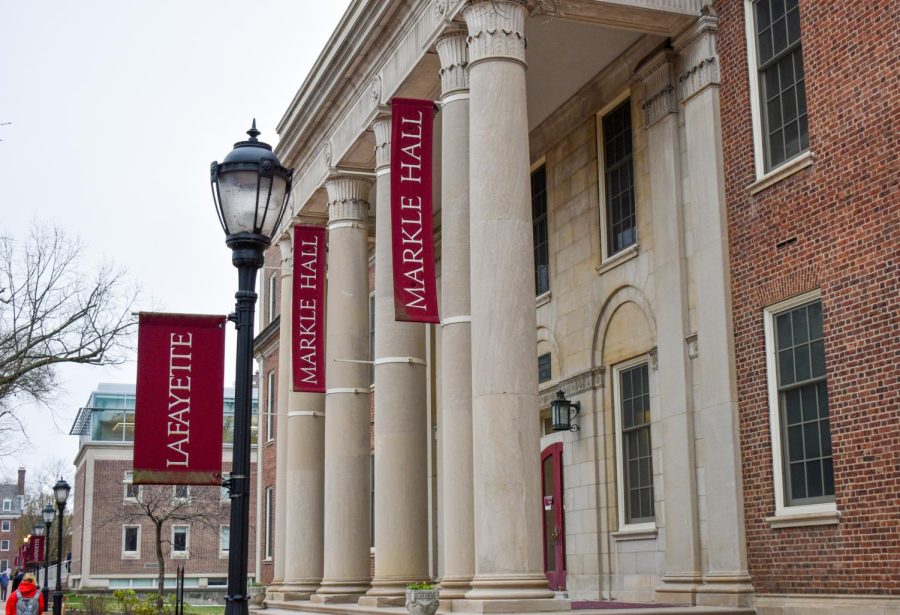As the COVID-19 pandemic led many colleges to adjust their admissions process, standardized testing was deprioritized at many schools, including Lafayette.
Now, after a year of being test-optional for the application process, Lafayette may keep this policy intact until 2028. The faculty is expected to cast a final vote on the matter on April 25 during the next faculty meeting, and it seems that they will vote in favor of this policy, according to the enrollment chair Justin Corvino.
“Everything currently on the books is through the class of 2028,” Corvino said. “Something can always happen, but it should be the plan.”
The date 2028 was chosen so that the college has time to study how the past test-optional classes performed. The college collected data that indicates whether applicants chose to submit scores, how they performed in first-year courses and the retention rate of admitted students.
“We want to make sure that … the students who come here are ready to have a good experience in college,” Corvino said. “During this academic year, we will start studying because we finally have a year of data.”
The date was also chosen so that the college has time to see whether other schools, especially those in the Patriot League, alter their testing policies.
“You can say, ‘That’s our competitor up the street. We should do what they do.’ Or, we could say, ‘Let’s take our thumb in the eye and say we are going to bring testing back,” Corvino said. “One of the judgment calls that the faculty can make in concert with the administration is, ‘What would happen if we went testing required, and nobody else [did] in the Patriot League?’”
Corvino said that all in all, the admissions team needs at least one year to plan before changing the application process.
For much of the beginning of the pandemic, testing centers shut down, preventing students from taking the SATs and ACTs that many schools utilized as determinants of an applicant’s fit to their academic environment.
“We decided, like most of the country, to make the tests optional not as a decision on the value of the tests themselves, but as a measure of exigency and not making unnecessary hurdles for students during a pandemic,” Corvino said.
Corvino explained that the college did not feel a large impact after making testing optional for applicants in the midst of the pandemic. As a 20-year faculty member, he said that he has noticed that standardized tests are “nowhere near the end-all-be-all of the [application] process.”
“Lafayette has been ready for being test-optional for years,” Corvino said. “Lafayette, since I’ve been here, has not over-emphasized the SATs.”
Annabelle Witkowski ’26 said that the test-optional policy had an impact on her application choices during her college search.
“When I found out that I was able to go test-optional, it definitely affected where I was going to apply for school,” Witkowski said. “I was able to really dial in on my essay and other aspects of my … interview process. I think as of right now, it is beneficial for upcoming classes and anyone who was affected by Covid.”
Witkowski said that even though the policy was intended to allow students who did not have access to test centers to apply to colleges, there is additional value in focusing on other areas of the applicants’ academic and extracurricular lives.
“It has school admissions focusing more on the aspects that make you, you, versus just your academics,” Witkowski said.






















































































































